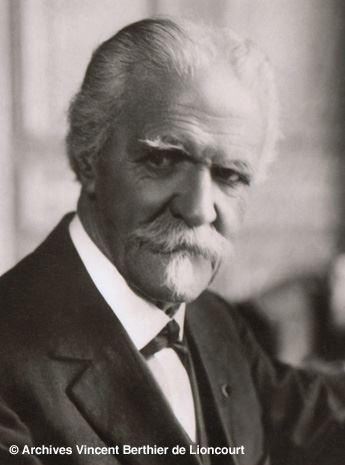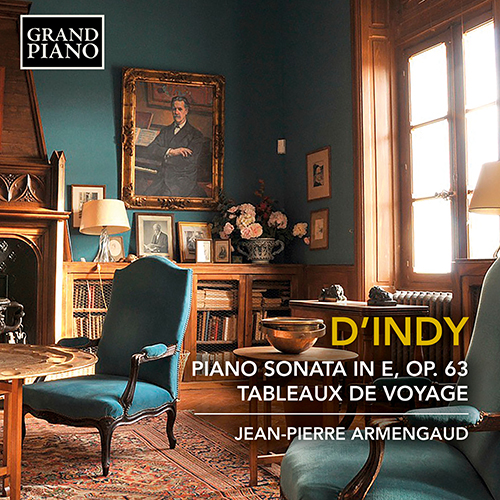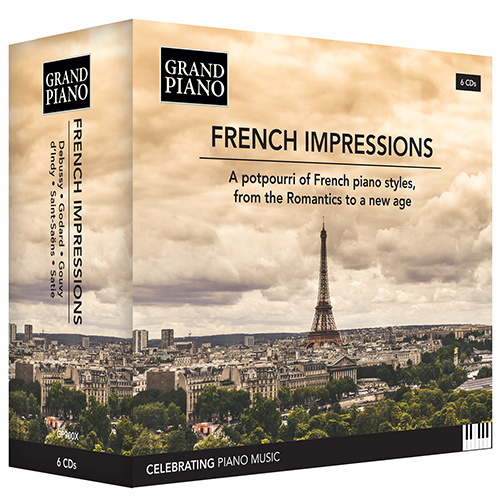
Vincent d' Indy (1851 - 1931)
Vincent d’Indy was born in Paris on 27 March 1851 into an aristocratic family from the Vivarais (Ardèche) region whose political sympathies lay with the Bourbon royal family. He was part of the European generation of composers that also includes Janáček, Chausson and Elgar.
D’Indy began learning piano in 1855, going on to study with Antoine Marmontel and Louis Diémer in 1862, and to take theory lessons with Albert Lavignac in 1864. After passing his baccalauréat in 1869 he composed an early piano sonata, although it remained unfinished.
In July 1870, Prussia declared war on France and d’Indy volunteered for active service in the National Guard during the Siege of Paris that winter. Shortly afterwards, he was introduced by Duparc to Franck, whose organ class he attended at the Conservatoire, and with whom he then studied composition between October 1872 and June 1874.
From 1873 onwards he made several trips to Germany. He visited Liszt in Weimar and was given a letter of introduction to the Wagners. In 1876 he went to Bayreuth for the opening of the Festspielhaus and the premiere of the Ring cycle. He finally met Wagner in 1882 at the premiere of Parsifal.
D’Indy’s early orchestral works were inspired by German culture: the three concert overtures based on Wallenstein (1870–81, Schiller), the symphonic legend La Forêt enchantée (1878, Ludwig Uhland), and the dramatic cantata Le Chant de la cloche (1879– 83, after Schiller). The Symphonie sur un chant montagnard français (1886) marked a turning point, taking its inspiration from French folk song, especially the songs of the Vivarais, where his ancestral roots lay.
In 1894 he founded the Schola Cantorum de Paris in order to offer a different kind of teaching from that provided by the Conservatoire, with a greater focus on sacred and early music. His students would include such distinctive figures as Satie, Roussel and Canteloube. From 1895 onwards he was also very active as a conductor, touring internationally—a career path followed by few other French composers at the time.



 Grand Piano has gained a reputation for producing high quality recordings of rare keyboard gems. Dedicated to the exploration of undiscovered piano repertoire, the label specialises in complete cycles of piano works by many lesser-known composers, whose output might otherwise have remained unknown and unrecorded.
Grand Piano has gained a reputation for producing high quality recordings of rare keyboard gems. Dedicated to the exploration of undiscovered piano repertoire, the label specialises in complete cycles of piano works by many lesser-known composers, whose output might otherwise have remained unknown and unrecorded.






